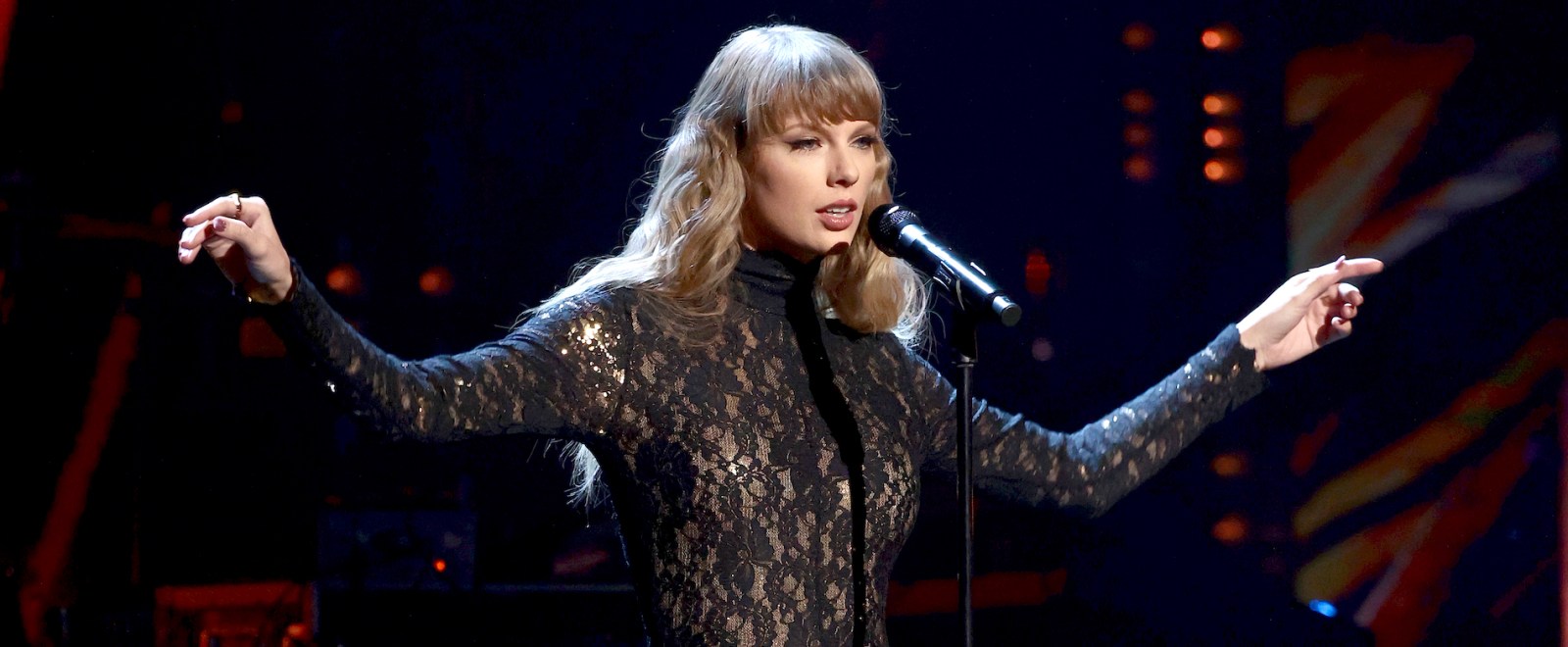It makes a lot of sense Amy Poehler – who, whether she’d admit this or not at this point, has had an incredibly important role to play in comedy on television over the last, now, 20 years – would want to make a documentary (Lucy and Desi which just premiered at the Sundance Film Festival) about Lucille Ball and Desi Arnez. After all, those two were, in almost every way imaginable, trailblazers of the medium. Without Ball and Arnez, television might look very different. And as Poehler points out, it’s not just that Ball was leading a show — then, later, her own production company, as a woman, before anyone else was doing that – she was doing it so early, what she was doing was trailblazing for anyone. And then there’s the whole aspect of Ball headlining a show with her own husband, a Cuban immigrant, in the 1950s. And Poehler’s right, by design, the show really doesn’t address that or make a thing about it. It’s just: here it is. What they did really is remarkable.
And the things that Poehler has decided to include take on even more importance when you think it through that these are, as someone who has also lived this career, a few decades later, some of the same obstacles she’s no doubt had to deal with. And then there’s Lucille Ball, paving the way. As Poehler mentions, her current production company has a couple of series and a couple of movies cooking at once. At one point Desilu was producing 30 shows.
Ahead, Amy Poehler explains why she wanted to make a documentary on, not just Lucille Ball or I Love Lucy, but the relationship between Ball and Arnez. And, also, when you get going on classic television, you never know where you might wind up, so there’s a lot more Three’s Company and Little House on the Prairie discussion than you might expect. (To be fair, Lucille Ball did appear on Three’s Company.)
I think the last time I spoke to you was for Sisters…
I was doing a little IMDB quiz, I just found out that we said the F-bomb 60 times in that movie. Exciting!
Is that any kind of record?
For my daily usage, no. But for a film, sure. I like your background by the way. It’s very MacGyver.
Oh no, it’s embarrassing.
It’s very MacGyver. Or MacGruber.
Yes, with my The Great Muppet Caper poster.
I love that movie. “Phil, this is Gil. Gil, this is Jill.”
And Fozzy and Kermit are twins in that movie. It’s amazing. No, we just moved and I don’t have a great background right now. We moved one block and it never ends…
You have to bring it box by box.
And it’s the stupidest thing to even try that. Then we had to get a moving company anyway.
Right!
So, I am curious, what were your first memories of Lucy and Desi? As a kid, when did you start watching them?
I was trying to think about that, because I feel like I Love Lucy, specifically the show, it felt like it always existed. It was always there. And I was like, when did first hear about it? I think, to be honest, a lot of me getting to know Lucile Ball, the actress, happened on The Carol Burnett Show, which was as a show that I definitely watched when I was growing up with my mom. And I Love Lucy was on, but it was in black and white and it was the show my parents watched. So I was like “SNL, baby!” And it wasn’t until I was an adult that I was like, oh, okay. I started a real relationship with I Love Lucy and really saw what Lucy was doing there, which was incredibly grounded acting.
And it’s so interesting that show, people ask why is the show is still being talked about 60 years later? And I think there are two reasons: I think, because the way it was shot on film, it’s really watchable still. It’s not in Kinetoscope and you can actually bear to watch it. It looks quite good. But Lucille’s performance is still very, very grounded. She’s acting everything very sincerely. It’s not bananas, even though the situations are bananas. She’s still grounding it somehow. So to answer your question, it was always around, it almost felt like it came with the TV when you got a TV.
Well, in the ’80s when I would get home from school, it’s not like you can just pull up anything you want. It was just like if a rerun of Hazel was on, I was watching reruns of Hazel.
People don’t even know that you had to get up to turn the channel. Imagine you having to get up and walk across a room to look at your next TikTok video. Imagine having to get up every time and swipe at your TV to watch the next video. It was horrifying.
I actually remember my first experience with Lucy. My favorite show as a little kid was Three’s Company. Remember when she came on and introduced all the clips from the previous seasons? She’s like, “Hello, I’m Lucille Ball. There’s no better show on TV than Three’s Company.”
First of all, we may have talked about this, John Ritter…
Yes, I love John Ritter.
And John and Lucy were friends. And Lucy proves a couple of theories and, boy, do I love my theories proven. One is that talented people are usually easy to work with and Lucy was strong and opinionated, but she showed up and she loved to work hard. She didn’t come and not know her lines and not care. And she really recognized talent. I know she loved John Ritter. She would watch Mary Tyler Moore and tape her show. She loved Bette Midler. She was obsessed with Carol Burnett. She was like, “They have it. They’re a star. That kid is talented.” Oh my gosh, I would’ve loved that. I mean Three’s Company! Wow.
I still watch it when it’s on.
Yeah, my new comfort show, which is not comedy, is Little House on the Prairie.
Wait, really?
That one can put you right to sleep. The sound, the clipping of the horses and the whistling of the wind and the blizzard that’s going to kill everyone?
Are you seeking it out on cable or is it streaming?
It’s on my DVR. It’s DVRed it.
I’m glad we’re putting in the legwork for Little House on the Prairie and Three’s Company. Check them out if you haven’t seen them, everyone.
[Laughing] Have you guys heard of Succession? You should check it out, it’s great.
And if you like Succession, you will love Little House on the Prairie. Michael Landon has a Logan Roy thing going on. I am sure the good folks at ABC gave Lucille Ball a lot of money to go on there to talk about Three’s Company. But I don’t think she would’ve done it if she didn’t like the show or were friends with John Ritter. So if she’s saying that, I remember going, well, I need to check out this Lucy show.
Well, one of the challenges for this doc, which is a little different than like, “let us show you the world of competitive handball and we’ll tell you everything about it.” These are people that people really feel like they know, but what they know is a very two-dimensional Halloween costume version. They almost know the impersonations of the people before they know the people, right? They see Gilda playing Lucy or they see, it’s this interesting thing where Lucy and Desi became very two dimensional, flattened and quite bloodless over the years….
Or the Weird Al song…
Yes. And I wanted to remind the viewer that these were passionate, very passionate, sexy, power couple, total outsiders, total mavericks, came into the business with tons of experience, so we’re quite confident in what they would say yes and no to. And came from a generation where their trauma was put in a suitcase and put in the attic and let’s get to work. I mean, it’s very interesting how they both had these really interesting early lives, but used it. So, that was my goal is that you walk away being reminded of them as people and not symbols or geniuses or icons even, which is like, what is that? What does that word mean?
Another interesting thing your film does is point out how important their production company was. I’d watch reruns of Star Trek and it was made by Desilu Productions. They created so many other shows.
I mean, here at Paper Kite, our production company, we have, right now, we have a couple of shows on the air and a couple of films in development. They had 30 shows at one point! Shooting at the same time! Lucy was adamant about keeping Gene Roddenberry working on that show. Everyone was like, “This kid, what is this wackadoo show?” So, yeah, Mission: Impossible and Star Trek were made by Desilu.
And whatever happened to those two shows? We don’t ever hear about Star Trek or Mission: Impossible anymore.
[Laughs] Totally. What I find very interesting is the way in which everybody wanted to put Desi and Lucy in these boxes. That, in fact, they did a lot of different things and they were true multi-hyphenates and even they wanted to put themselves in boxes, even then Lucy was of a generation that probably wouldn’t call herself a writer or director or even a feminist. Those were things that weren’t important to her and didn’t feel like when she tried them on they were right. But, with perspective, it’s like she was the first female head of any production studio and ran it really well. And whether or not she felt like that was her true essence, she did it really well. It’s just interesting, they were so adhered to their time, the ’50s and ’60s and ’70s. And the other thing is, people think when people are off a TV show, they just fall off the cliff. And Lucy did so many shows after I Love Lucy.
A lot of them got in the syndication. Sometimes they’d play like Here’s Lucy, or whatever.
And Vivian Vance is playing a divorced mom.
Right. In retrospect, that is crazy that they went with that at that time. But they did.
One hundred percent. And so there’s all this stuff that you look back now… And also, the fact that Desi and Lucy as a couple on TV was completely groundbreaking, that he was a Cuban immigrant, married to a woman, he was able to push back a lot of gatekeeping to be so successful. And the show was not about how that was weird. The show wasn’t like, can you believe these two?
No, not at all. It’s just like, no, we’re together. And here we go.
The show is like, okay, they’ve been together so let’s meet them there rather than where did they meet and how could they: he’s this; she is this. I mean, it’s just really wild.
It’s kind of crazy this documentary doesn’t already exist about them before you did it? At what point did you decide, well, I should make this?
Well, Lucie Arnaz Luckinbill, Lucy and Desi’s daughter who is incredible in this film and so helpful – we really use a lot of Lucy and Desi’s real words in the film. We really want to hear from them. So we use them a lot. She had done a documentary about her family, and I know that there’s been a lot of I Love Lucy tales of that show. But I agree that I think that what was missing was this feeling of their long partnership and how that was the middle of all of this other stuff. And I just think that people, they tended to pull all of the aspects of I Love Lucy apart without paying attention to that.
Right. I’ve seen where it’s just like here’s why I Love Lucy is important. I understand that. But I want to see more about them and that’s what you do.
And sometimes with documentaries about comedy either there’s a lot of time spent with funny people saying that the other person… there’s a lot of time telling us what we already know, which is, “they were funny.” Or a lot of time is spent being like, “but they were also very sad.”
That’s true.
Which is true. No one’s all fun. And no one’s all sad, hopefully. So I kind of felt like I was hoping that we’d go in on the angle of rupture and repair, which is this idea of we invite people into our homes and television, as you know, it’s like the most intimate medium. And then we watch this pattern of things going wrong and things getting fixed over and over again – while we’re in the middle of our own families where things are going wrong and not getting fixed. So to watch their journey – as lovers, as partners, as in some aspect at certain points, adversaries into friends – is this very healing journey. I think that combines all of the things that they did.
You mentioned their daughter where she talks about Desi and Lucy’s last conversation together before Desi died, when they told each other they loved each other. I had never heard that before. Have you heard that before? Did you know that?
You know what? It was so special. Not only because the story is beautiful, which is that Lucy and Desi, up until the very end of Desi’s life and soon after, Lucy’s, remained connected. Which is kind of what we very much want. But when Lucie [Arnaz Luckinbill] tells the story about her parents at the end of their lives, watching the show together and laughing? It’s like, I can’t explain it other than it’s what you would want for your own parents. Or what you would want for yourself or what you feel like life is supposed to be is this moment where you get to look back at the laughs that you had and the things you made together one last time. And when Lucie was telling that story, there were two things: I was so grateful that she was being vulnerable and allowing us to know that story. But also it was just, to me, it’s what that beautiful sadness that comedy has, that loving two sides of the coin, the salty and sweet of all of it is so satisfying to be around. So, yeah, I couldn’t believe that story.
Before we go, you mentioned my background. But you’ve got the Pawnee city seal behind you.
I know! I have the Pawnee seal!
That’s better than the nonsense going on behind me.
I remember where I came from, sir. That’s for sure.
You can contact Mike Ryan directly on Twitter.

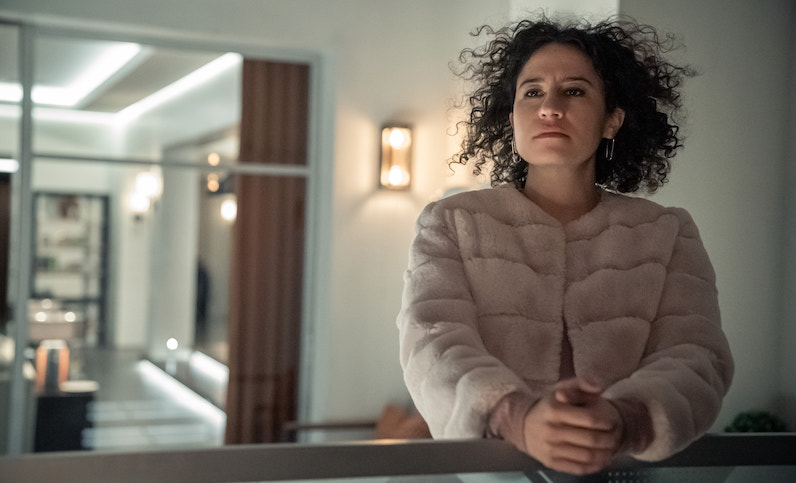


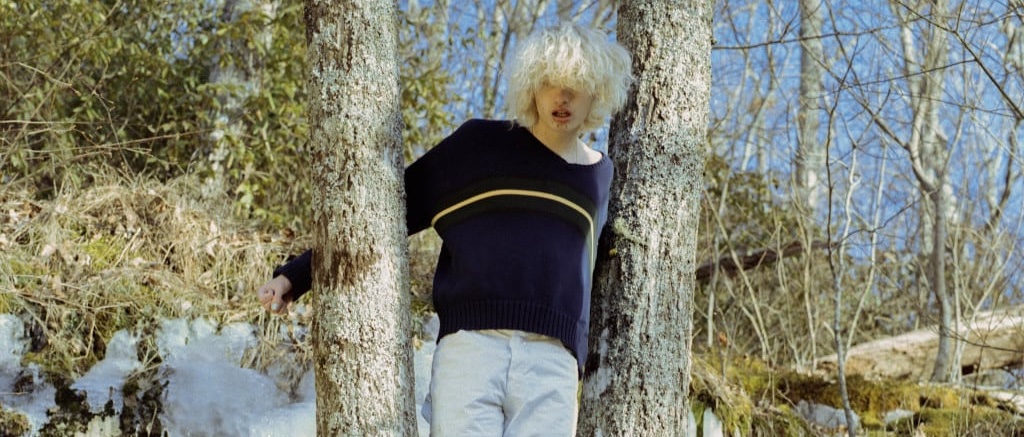
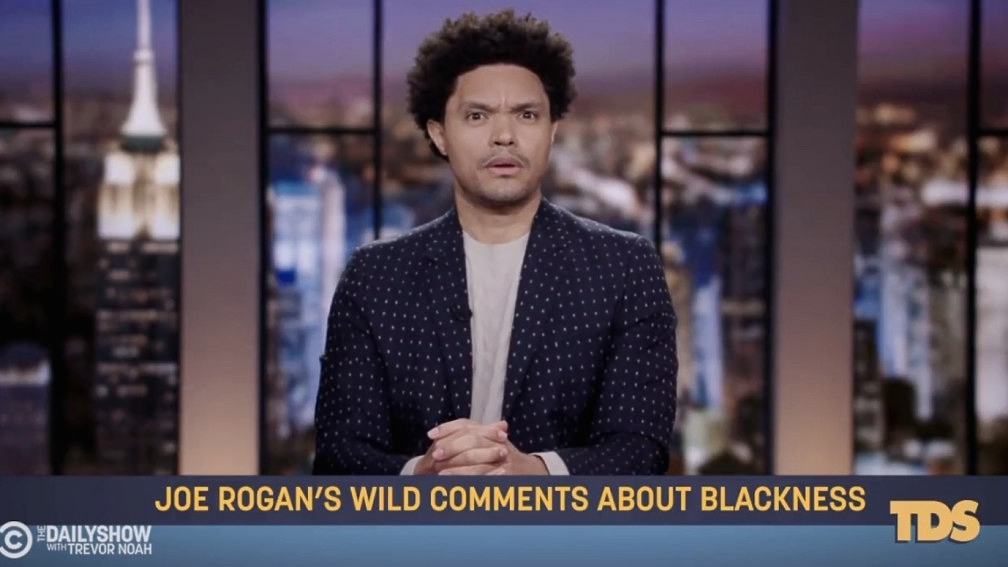
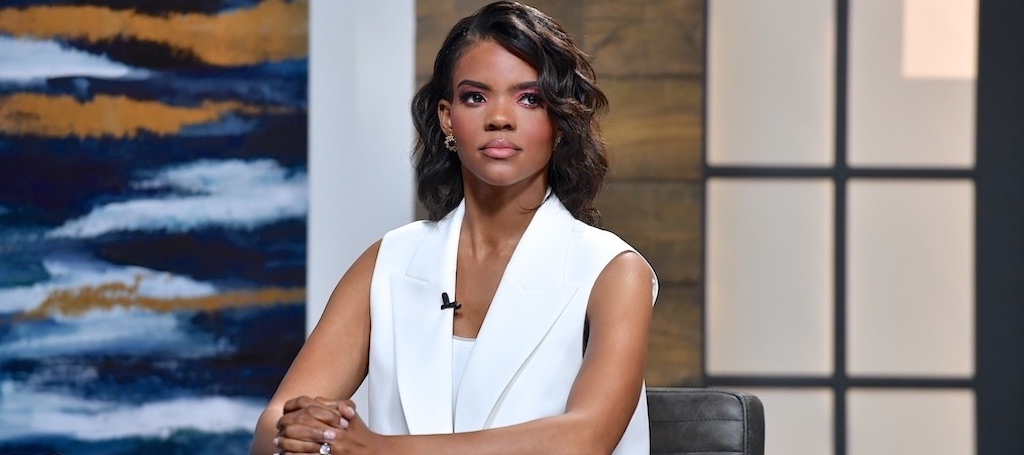
 Rose
Rose



